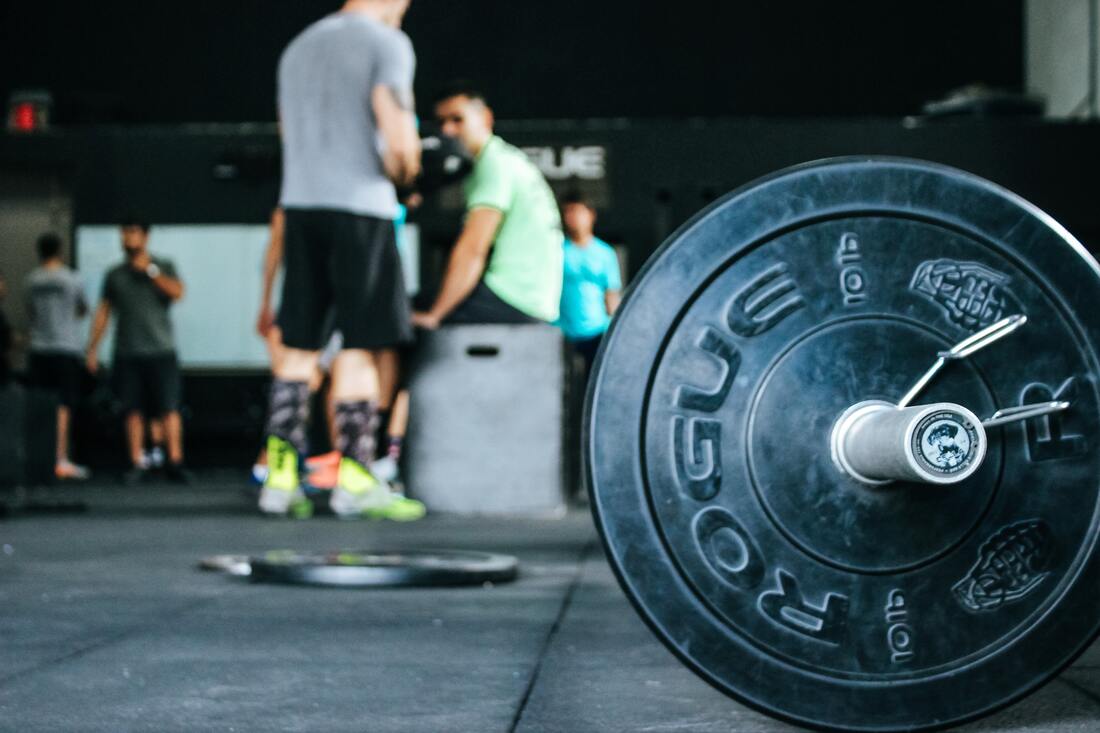Stay committed to your decisions, but stay flexible in your approach. Religiously tracking calories over the winter holidays isn’t often practical or enjoyable.
However, I completely understand if you’re anxious about taking a break from it because you worry that you won’t be able to maintain your results, what with all the festive food available in the office or at the store, and the social meals you may have planned. Nevertheless, while tracking can be a very helpful tool, it’s not the main contributing factor to your results, even if it can feel that way. The real contributors to your success so far are the new nutrition- and movement-focused habits that you’ve been building while calorie- and macro-tracking. If you maintain these habits, you will maintain your results, whether you’re tracking or not. That’s why in this article I want to focus on these five tips to help you maintain your fitness and health-focused habits should you choose not to track for a couple of days over Christmas, New Year’s Day, or any other holiday you may be celebrating this month:
0 Comments
If we could give every individual the right amount of nourishment and exercise, not too little and not too much, we would have found the safest way to health. Unless you live in Florida or a similar part of the world where it’s always relatively warm and sunny, and unless you’re reading this in the opposite Hemisphere to mine, it’s that time of the year again: flu season.
Fortunately, by working on your fitness, you can whip your immune system into shape, increasing your chances of either staving off common illnesses completely, or at least reducing the severity of any symptoms you may experience. If, like some of my legendary clients, you’re an athlete following an intense program, work with children or do shift work, or you find yourself getting sick often at this time of year for any other reason, then this article is for you. These are my top five evidence-based tips to support and enhance your body’s natural defences: Sleep is that golden chain that ties health and our bodies together. I’m sure this will come as a shock, but, when you don’t sleep well, life sucks.
What you may not know and what’s worse by far (let’s get our priorities straight here), is that your gains will suffer. You could have the best training program and diet in the world, but, if your sleep is inadequate, you’re going to struggle with:
Yes, that’s basically everything. Fortunately, improving sleep is easy, cheap, and more anabolic than expensive supplements, pre-workout formulas, and other less useful yet “sexier” fitness tools. So don’t sleep on this low-hanging fruit. (See what I did there?) Keep reading for a comprehensive guide on:
Let’s delve into it. Success isn’t always about greatness. It’s about consistency. Consistent hard work gains success. Greatness will come. Reflecting on the past two years of coaching people online and in person, I created a list of the advice that my clients have found most helpful in the pursuit of their goals, but that seems to be underrated in an online fitness space rife with detox teas and abs-blasting workouts.
This article breaks down these tips into the following categories:
What’s wrong with extreme dieting and hard-core fitness plans is that they don’t take into account the rest of your life. 95% of diets fail, so diets don’t work.
… Or do they? If you take a look at the scientific literature, there’s actually plenty of evidence to the contrary. For example, we know that diets inducing a caloric deficit are effective for fat loss regardless of whether they’re high in fats, carbohydrates, or protein. In other words, any diet can work as long as it involves a caloric deficit. The real problem is maintaining the resulting weight loss. For instance, a review of nearly 30 long-term studies on weight loss and maintenance in the American population showed that more than half of the weight lost was regained within two years, and 80% was regained within five. For this reason, experts consider maintenance of 5 to 10% of your weight loss “a great achievement”. But why is it so hard not to put weight back on? When a new client signs up for online coaching to lose fat, what often stands out to me is their mindset: In their experience, a diet is a short-term, excruciating “eat chicken breast and a green leaf for every meal” endeavour, not an attempt to change their lifestyle for the better in the long run. After a few weeks or months of this torture, they go back to the same way they were eating before, regain weight, start another diet, and so on. This vicious cycle is unfortunately common because most diets give you rules to stick to, whether you like them or not, instead of habits that you can incorporate into your long-term lifestyle. This article is perfect if you haven’t had much luck maintaining fat loss after your previous diets, because it does exactly what those diets didn’t do: It teaches you five habits you need to have in place not only to lose fat, but to keep it off, too. If you’ve been spinning your wheels with countless diets for as long as you can remember, you don’t want to miss this one. |
Nikias TomasielloWelcome to my blog. I’m an online fitness coach with a passion for bodybuilding, fantasy, and bread. Want to work with me? Check out my services!Archives
May 2024
Tags
All
|
Follow me on social media |
Get in touch |
© 2018-2023 Veronica Tomasiello, known as Nikias Tomasiello – All rights reserved





 RSS Feed
RSS Feed